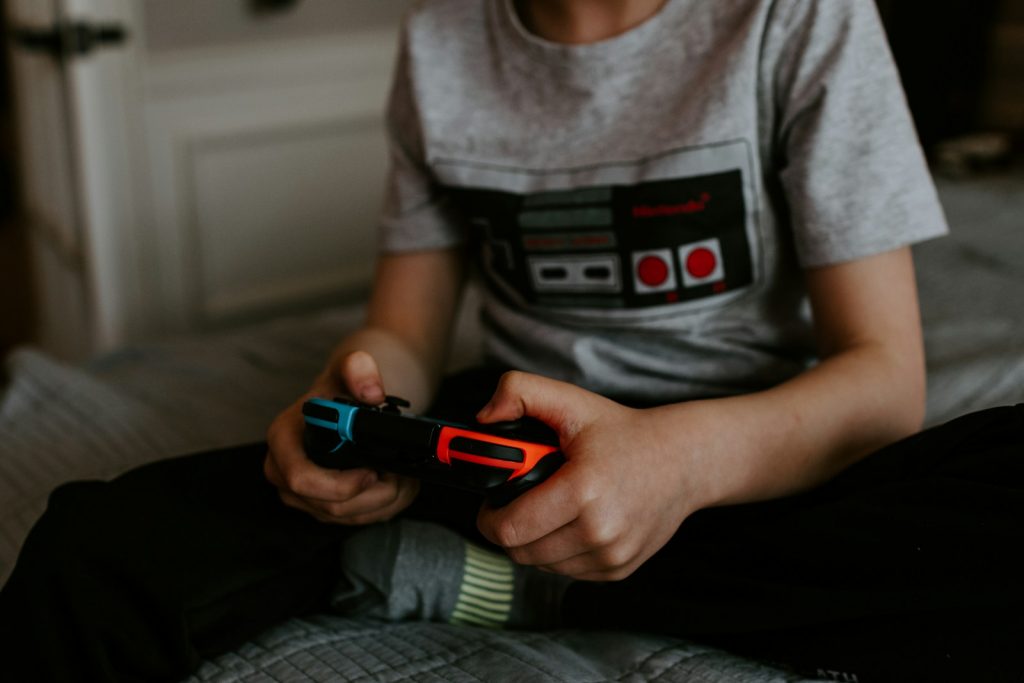15 Surprising Benefits of Playing Video Games

For years, video games have often been associated with negative stereotypes: distractions from studies, contributors to sedentary lifestyles, and even causes of behavioral problems. However, research and personal anecdotes from gamers reveal that video games can offer a wide range of surprising benefits, particularly when played in moderation and within a balanced lifestyle. From improving cognitive function and problem-solving skills to enhancing mental health, video games are more than just a form of entertainment. They can serve as powerful tools for developing useful skills and fostering personal growth.
In this article, we’ll explore 15 surprising benefits of playing video games, shedding light on the positive impact they can have on mental, emotional, and social well-being.
1. Enhances Cognitive Skills
One of the most significant benefits of playing video games is the improvement of cognitive skills. Many video games require players to think critically, make quick decisions, and solve complex problems in real-time. These challenges engage the brain and can improve skills such as memory, attention, and spatial awareness.
For instance, action games often require players to keep track of multiple moving objects, plan strategies, and make decisions in a split second, all of which help sharpen cognitive abilities. Even puzzle-based games like Tetris or strategy games like StarCraft can enhance problem-solving and planning skills, as players must consider the consequences of their actions and adapt to ever-changing situations.
2. Improves Problem-Solving Abilities
Video games are excellent for enhancing problem-solving skills. Many games present players with challenges, puzzles, or obstacles that require creative and logical thinking to overcome. In games like The Legend of Zelda or Portal, players must figure out how to navigate complex environments, use tools, or manipulate objects to solve puzzles and progress.
These problem-solving tasks not only make video games engaging but also translate into real-life benefits. Regularly tackling in-game challenges can improve one’s ability to solve problems in everyday life, from managing work-related tasks to resolving personal conflicts.
3. Boosts Hand-Eye Coordination
Playing video games can significantly improve hand-eye coordination, a skill that is critical in many real-world activities, such as driving, playing sports, or performing certain jobs like surgery. Video games, especially action games and first-person shooters, require players to react quickly and accurately to visual stimuli, training them to synchronize their hand movements with what they see on the screen.
Research has shown that gamers tend to have better reflexes and coordination than non-gamers, which can be beneficial in situations that require quick responses and precise actions. Even non-action games like platformers or sports simulations can improve hand-eye coordination by requiring precise control of characters and objects in virtual environments.
4. Encourages Social Interaction
Contrary to the stereotype of gaming as an isolated activity, many video games foster social interaction and collaboration. Multiplayer games like Fortnite, Among Us, or Call of Duty often involve teamwork, communication, and cooperation with other players, either online or in person.
These interactions help build social skills, encourage teamwork, and create a sense of community among players. In fact, many friendships and relationships have been formed through shared gaming experiences. The rise of online gaming communities, such as those found on Twitch, Discord, and Reddit, has also provided a platform for people to connect, share tips, and build friendships, regardless of geographical boundaries.
5. Reduces Stress and Anxiety
Video games can serve as an effective tool for reducing stress and anxiety. Immersing oneself in a game can provide a much-needed escape from the pressures of daily life, allowing players to focus on challenges and goals within the game world rather than their real-world problems.
For some individuals, playing relaxing or visually appealing games like Animal Crossing or Stardew Valley can be particularly therapeutic. These games offer a peaceful environment where players can engage in low-stakes activities like gardening, fishing, or decorating, which can help reduce anxiety and promote relaxation.
Research has found that playing video games for even short periods can lead to measurable reductions in cortisol (the body’s primary stress hormone), making them an excellent tool for stress relief.
6. Enhances Multitasking Skills
Many video games require players to manage multiple tasks simultaneously, honing their ability to multitask. For example, in strategy games like StarCraft or Age of Empires, players must manage resources, build structures, and plan military strategies—all while defending against enemy attacks.
Even fast-paced action games or role-playing games (RPGs) often require players to pay attention to their character’s health, navigate complex environments, and react to multiple enemies or obstacles. By engaging in these multitasking challenges, gamers can improve their ability to handle several tasks at once in real-life scenarios, such as managing multiple work assignments or balancing different responsibilities.
7. Improves Focus and Concentration
Video games can significantly improve focus and concentration, especially in games that require sustained attention and mental effort. Many games demand that players pay close attention to details, monitor the game environment, and anticipate changes or threats. In games like Dark Souls or Overwatch, where one wrong move can lead to failure, players must maintain laser-like focus to succeed.
Studies have shown that video game players tend to have better sustained attention spans and are better able to maintain focus during challenging or repetitive tasks. This ability to concentrate for extended periods can translate into better focus and performance in everyday tasks, such as studying, working, or learning new skills.
8. Fosters Creativity and Imagination
Certain genres of video games, particularly sandbox games like Minecraft or The Sims, provide players with vast virtual worlds where they can build, create, and experiment. These games encourage creativity, allowing players to design their own structures, craft items, and even shape entire landscapes according to their vision.
Creative games foster imaginative thinking and provide a platform for self-expression, as players are free to create unique characters, narratives, and worlds. This form of creativity can have positive effects on other areas of life, encouraging individuals to think outside the box and approach problems with a more innovative mindset.
9. Promotes Resilience and Perseverance
Video games often involve repeated failure before eventual success, which can teach players the importance of resilience and perseverance. Whether it’s losing a difficult boss fight in Dark Souls or failing a mission in Grand Theft Auto, games challenge players to keep trying, learn from their mistakes, and improve their skills.
This attitude of perseverance can carry over into real life, helping individuals develop a growth mindset where they view failure as an opportunity to learn and grow rather than as a roadblock. The persistence required to overcome difficult in-game challenges can build mental toughness and resilience, making players more determined and patient in the face of real-world obstacles.
10. Improves Decision-Making Skills
Many video games, particularly strategy games and action games, require players to make rapid decisions based on limited information. Whether it’s choosing the best route to avoid enemies in a stealth game or deciding which resources to allocate in a real-time strategy game, video games push players to think critically and make decisions under pressure.
Research has shown that gamers tend to make faster and more accurate decisions than non-gamers, particularly in high-pressure situations. This improved decision-making ability can be beneficial in a variety of real-life contexts, such as driving, managing a project at work, or handling emergencies.
11. Helps Build Teamwork and Collaboration Skills
Many multiplayer games rely on effective teamwork and collaboration to achieve success. Whether it’s coordinating strategies in a team-based shooter like Overwatch or working together to solve puzzles in Portal 2, players must communicate effectively, share responsibilities, and collaborate with teammates to win.
These teamwork experiences help players develop skills that are valuable in real-world settings, such as the workplace or group projects at school. Learning to communicate clearly, delegate tasks, and support others can lead to better team dynamics and more successful collaborations in both gaming and non-gaming environments.
12. Provides a Sense of Achievement and Motivation
Video games often feature progression systems that reward players for completing tasks, achieving goals, or mastering skills. Whether it’s leveling up a character in an RPG or earning a new rank in a competitive multiplayer game, these achievements provide a tangible sense of accomplishment.
This sense of achievement can be highly motivating, encouraging players to set and pursue goals, both in-game and in real life. The reward systems in games, such as unlocking new abilities or earning in-game rewards, can boost motivation and self-confidence by showing players that persistence and effort lead to success.
13. Enhances Memory and Learning
Video games can have a positive impact on memory and learning abilities, especially in games that require players to remember complex controls, sequences, or storylines. Role-playing games (RPGs) like The Witcher or Mass Effect often involve intricate plots and character interactions that require players to keep track of multiple details over the course of the game.
This mental engagement enhances working memory and long-term memory, as players must recall information and apply it in future scenarios. Additionally, educational games and serious games designed for training purposes can be particularly effective at enhancing learning and memory, as they combine entertainment with educational content.
14. Boosts Emotional Regulation
Video games can help players develop better emotional regulation by teaching them how to manage frustration, disappointment, and stress. Many games are designed to challenge players, and repeated failures—such as losing a match or dying in a game—can evoke feelings of frustration. However, learning to remain calm, adjust strategies, and persevere in the face of these challenges can improve a person’s ability to regulate their emotions.
This skill is not only beneficial in gaming but also in real life. The ability to stay calm under pressure and handle frustration constructively can improve emotional well-being and interpersonal relationships.
15. Offers Therapeutic Benefits for Mental Health
Increasingly, video games are being recognized for their therapeutic benefits, particularly in treating mental health issues like depression and anxiety. Gamification and therapeutic games have been used as part of treatment programs to help individuals manage symptoms of PTSD, ADHD, and mood disorders.
Some games are specifically designed to promote mental well-being by offering calming, positive environments or by encouraging mindfulness and relaxation. For example, games like Journey and Gris offer emotionally rich experiences that can help players process difficult emotions in a safe and supportive space. Even traditional games can provide an escape and sense of purpose, helping individuals manage their mental health challenges.
While video games are often viewed through a negative lens, they offer a surprising array of cognitive, emotional, and social benefits that extend beyond mere entertainment. From enhancing problem-solving skills and hand-eye coordination to fostering creativity, teamwork, and emotional resilience, playing video games can provide valuable life skills and improve overall well-being.
As with any activity, moderation is key, and it’s important to balance gaming with other aspects of life such as physical activity, work, and social relationships. However, when played mindfully and responsibly, video games can be a powerful tool for personal growth, stress relief, and even mental health support. For gamers and non-gamers alike, understanding these benefits can help dispel the myths surrounding video games and reveal the positive impact they can have on our lives.


